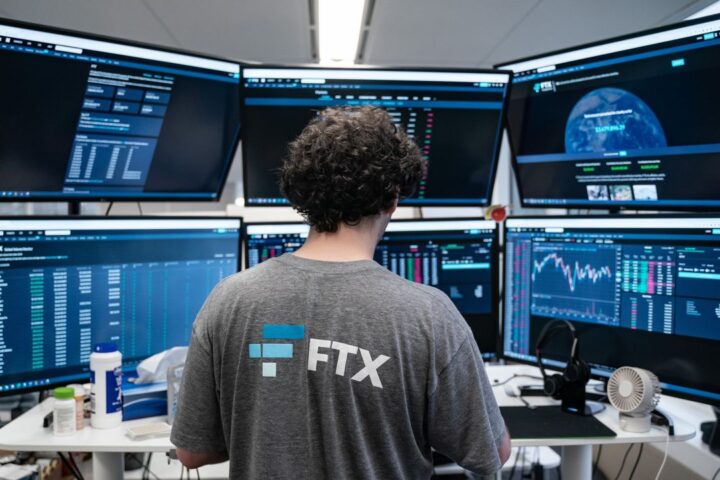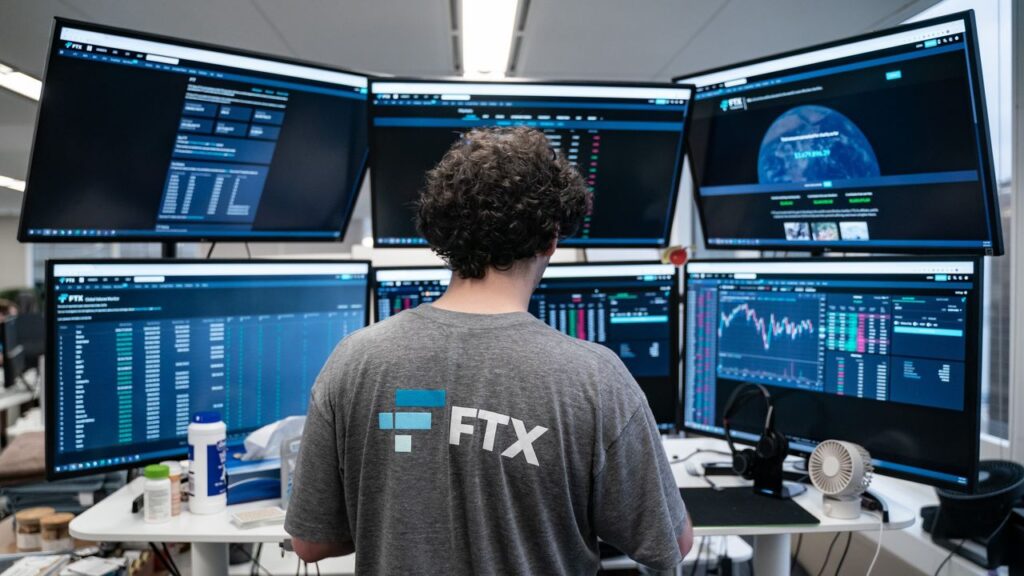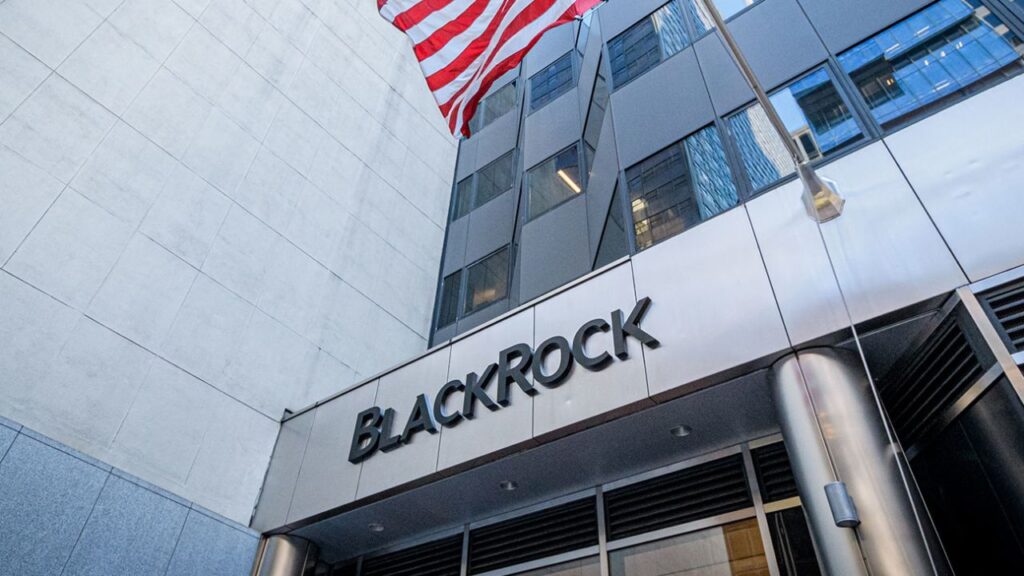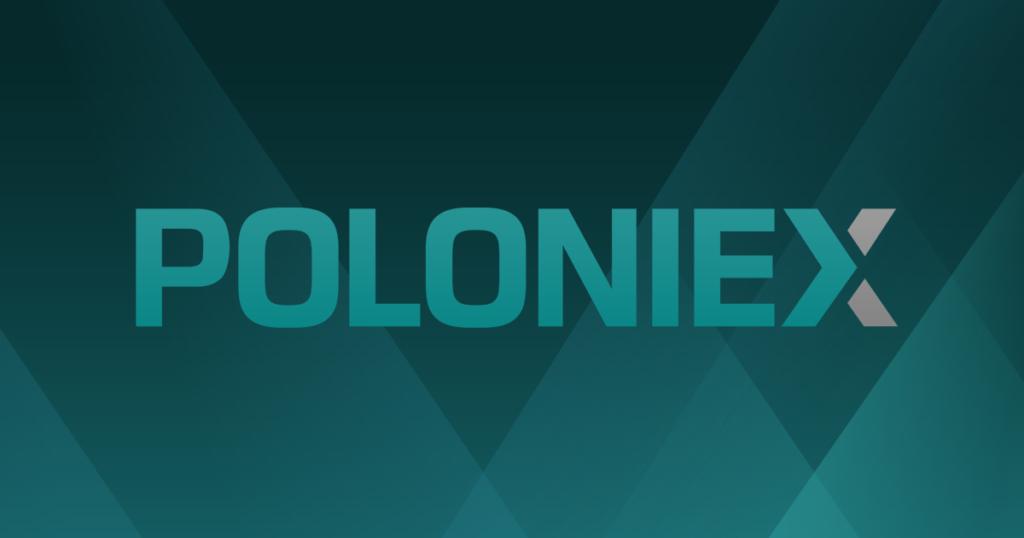In a recent development in the United States government’s legal battle against Sam “SBF” Bankman-Fried, former CEO of FTX, prosecutors have moved to liquidate two luxury aircraft before finalizing forfeiture procedures.
The action, detailed in a filing on March 22 with the U.S. District Court for the Southern District of New York, stems from efforts led by U.S. Attorney Damian Williams to mitigate the financial losses on two planes associated with FTX and Bankman-Fried.
The government’s strategy aims to address the depreciation of the assets in question, specifically a Bombardier Global and an Embraer Legacy, which were previously flagged in October 2023 as liable for seizure due to their connection with Bankman-Fried’s criminal activities.
The financial specifics regarding the aircraft, which were initially purchased for $15.9 million and $12.5 million respectively, remain somewhat ambiguous.
Nevertheless, the prosecution plans to allocate up to $1.8 million for their maintenance and an additional $183,000 for the Embraer Legacy’s transfer, contingent upon the sales’ returns being adequate.
An agreement facilitated between the prosecutors, FTX, and its affiliates has paved the way for the Embraer Legacy to be relocated to a Florida airport, facilitating the U.S. Marshals Service (USMS) to initiate the sale process expediently.
The USMS had already taken control of the Bombardier Global earlier in February 2023, pursuant to a legal warrant.
These aircraft represent a fraction of the assets linked to Bankman-Fried that are earmarked for forfeiture following his conviction on multiple criminal charges.
A list of assets disclosed in March included shares in Robinhood, various currencies, cryptocurrencies, and political donations made by SBF during his tenure at FTX.
Neither Bankman-Fried nor his legal representative, Marc Mukasey, have contested the sale of the planes.
Bankman-Fried was found guilty of seven felony charges in November 2023 and is currently incarcerated, awaiting a sentencing hearing scheduled for March 28.
The prosecution has proposed a sentence ranging from 40 to 50 years, while his defense has suggested a more lenient sentence of 6.5 years.
To submit a crypto press release (PR), send an email to sales@cryptointelligence.co.uk.
Bitcoin recently marked a significant milestone by closing above $69,000 on March 25, indicating a bullish momentum reclaiming an important resistance zone.
This event, as reported by Cointelegraph Markets Pro and TradingView, registered BTC/USD’s highest daily closure in nearly ten days, demonstrating a notable uptrend.
The surge was particularly catalyzed by a positive shift during the initial Wall Street trading session, where Bitcoin’s value increased by up to $4,600 within a single day.
This momentum carried forward, propelling Bitcoin past the $71,000 threshold subsequently.
Financial commentator Tedtalksmacro highlighted a shift in the market dynamics, pointing out that U.S. spot Bitcoin exchange-traded funds (ETFs) experienced net inflows after a week of negative flows and significant withdrawals from the Grayscale Bitcoin Trust (GBTC).
He shared, “After 5 consecutive outflow days, Bitcoin spot ETFs saw +$15.4M USD flow in on Monday. +262M from Fidelity.
“The bid is back.”
READ MORE: Momentum Shifts in Bitcoin Market as Institutional Outflows Slow and Optimism Grows for Future Highs
Despite the continued large outflows from GBTC, amounting to $350 million, BTC/USD managed to overcome these potential hindrances, signaling strong market resilience.
Market analysts are looking at the developments with an optimistic lens.
Matthew Hyland, a well-known trader and analyst, speculated about the potential for Bitcoin’s price to reach the $100,000 mark, especially if the current momentum can clear significant resistance areas.
He underscored this possibility based on a reset of a classic Bitcoin price metric that had previously aligned with a notable increase in Bitcoin’s value.
The daily relative strength index (RSI), a key indicator of market momentum, also showed promising signs, although it remained below the threshold typically associated with bull market conditions.
Analyst Mark Cullen, however, cautioned about potential volatility, pointing to “gaps” in the CME Group Bitcoin futures markets that could act as short-term price targets.
A specific gap below $64,000 was identified as unfilled, suggesting possible price movements.
Conversely, Daan Crypto Trades downplayed the immediate impact of these gaps, suggesting that significant breakouts often leave such gaps unfilled without necessitating immediate corrections, thus indicating a less pressing concern for a potential price dip in the near term.
To submit a crypto press release (PR), send an email to sales@cryptointelligence.co.uk.
In Busan, South Korea, the Haeundae Police Station has apprehended two individuals, aged in their 20s and 30s, for defrauding a senior citizen of 5.5 billion won ($4.1 million) through cryptocurrency investment schemes.
The duo enticed the victim with promises of hefty returns, suggesting a 70% profit on monthly investments of 1 billion won.
The scammers’ persuasive assurance was, “It’s a boom period for coin (cryptocurrency).
“If you invest 1 billion won, I will call it 1.7 billion won a month later.”
Over the course of several months, from September to December 2022, the victim made six transactions totaling 5.5 billion won, only to be deceived with counterfeit balance certificates feigning proof of investment.
The elaborate scam involved presenting the victim with forged balance sheets displaying 20 billion won in cryptocurrencies and fabricated real estate contracts, falsely suggesting the successful placement of the victim’s funds in crypto trading accounts.
Despite the apprehension of the fraudsters, the status of the recovered funds remains undisclosed.
This incident underscores the risks associated with the burgeoning yet volatile cryptocurrency market. It coincides with developments involving South Korea’s notorious crypto figure, Do Kwon, co-founder of Terraform Labs.
Kwon, entangled in legal proceedings following the Terra ecosystem’s collapse in 2022, was released from Montenegrin custody on March 23.
Despite serving a sentence for possession of falsified documents, his future is uncertain with pending extradition requests from both the United States and South Korea.
Prison director Darko Vukcevic detailed, “We released Do Kwon from prison as his regular prison term for traveling with fake papers ended.
“Since he is a foreign citizen and his documents were withheld, he was taken for an interview to the police directorate for foreigners, and they will deal with him further.”
The impending decision by the Council of the Supreme Court regarding Kwon’s extradition to South Korea adds another layer of intrigue to the international legal drama surrounding cryptocurrency crimes.
To submit a crypto press release (PR), send an email to sales@cryptointelligence.co.uk.
Felix Reeves quit his job to trade crypto full-time back in 2018, and he has since been in the news on several occasions.
Felix Reeves began his foray into the world of cryptocurrency from a modest background, armed with nothing but a keen analytical mind and a voracious appetite for learning. Initially, Reeves worked in traditional finance, where he honed his skills in market analysis and investment strategy. However, disillusioned by the limitations and inefficiencies of traditional banking systems, he sought a realm where innovation was not just encouraged but was the cornerstone of its very existence.
The early days of cryptocurrency provided just the kind of revolutionary landscape Reeves was searching for. He was captivated by the potential of blockchain technology to democratize finance, ensuring security, transparency, and accessibility. With a small amount of savings, Reeves embarked on his crypto trading journey during the infancy of Bitcoin, navigating the uncharted waters with a blend of intuition and meticulous research.
Trading Philosophy and Strategy
Felix Reeves’s trading philosophy is deeply rooted in a balanced approach to risk and opportunity. He views the crypto market not as a gamble but as a chess game, where strategic moves, patience, and foresight dictate success. Reeves is known for his disciplined investment strategy, which emphasizes diversification, long-term holding, and the leveraging of technology for market analysis.
READ: Scotty Kilmer News – When Did He Buy Bitcoin?
One of the hallmarks of Reeves’s approach is his adept use of technical analysis combined with a keen sense of market sentiment. He developed a proprietary trading algorithm that analyzes historical price data and social media trends to predict market movements. This tool has been instrumental in his ability to time the market, identifying entry and exit points that maximize gains while minimizing losses.
Impact and Contributions
Felix Reeves has made significant contributions to the crypto community, both through his trading successes and his efforts to educate others. He runs a popular blog and YouTube channel where he shares insights into his trading strategies, market analysis, and predictions on future trends. His transparency and willingness to share knowledge have earned him a loyal following and have helped demystify cryptocurrency trading for many newcomers.
Reeves is also an advocate for the ethical and responsible use of cryptocurrency. He has spoken out against scams and schemes that prey on uninformed investors and has worked to promote security and fraud awareness within the community. Furthermore, he has been involved in various initiatives aimed at leveraging blockchain technology for social good, including projects focused on financial inclusion and charitable giving.
Challenges and Controversies
The journey of Felix Reeves has not been without its challenges and controversies. His outspoken views on certain cryptocurrencies and projects have sometimes drawn criticism and debate within the community. Moreover, the inherent volatility of the crypto market has tested his resolve and strategies, leading to moments of significant loss as well as gain.
Reeves’s experiences with regulatory scrutiny highlight the ongoing tension between the burgeoning crypto industry and traditional financial institutions. His advocacy for a more open and regulated crypto market has put him at odds with both crypto purists who favor total decentralization and regulators wary of the technology’s potential for misuse.
Legacy and Future
Felix Reeves’s legacy in the world of cryptocurrency is one of innovation, resilience, and a relentless pursuit of a more equitable financial system. As the crypto market continues to evolve, his story serves as a reminder of the potential for individual traders to not just succeed financially but to contribute to the broader societal understanding and acceptance of cryptocurrency.
Looking to the future, Reeves remains committed to exploring the frontiers of blockchain technology. He is particularly interested in the development of decentralized finance (DeFi) platforms and the potential for cryptocurrencies to integrate with emerging technologies such as artificial intelligence and the Internet of Things (IoT).
JPMorgan analysts have suggested that investors have likely completed most of their profit-taking from the Grayscale Bitcoin Trust (GBTC), potentially alleviating downward pressure on Bitcoin’s price.
This observation coincides with record high daily net outflows from United States spot Bitcoin exchange-traded funds (ETFs) on their ninth day of trading.
In a market report dated January 25, the analysts, led by Market Strategy Managing Director Nikolaos Panigirtzoglou, stated that “GBTC profit taking has largely happened already.”
This implies that much of the negative influence on Bitcoin stemming from this source has subsided.
Grayscale’s fund had been trading at a discount to its net asset value since early 2021.
The analysts attributed the $4.3 billion outflows from the fund since its conversion to an ETF on January 11 to “profit-taking on previous GBTC investments.”
This profit-taking is seen as one of the key reasons behind Bitcoin’s recent price drop of nearly 20%, causing it to trade below $40,000 following the launch of multiple U.S. Bitcoin ETFs.
JPMorgan’s assessment follows a significant event where the ten approved spot Bitcoin ETFs experienced a net outflow of $158 million on January 24.
READ MORE: Polygon Labs Unveils AggLayer: Transforming the Blockchain Landscape into a Unified Network
This marked the largest net outflow since their launch, as per BitMEX research data shared on social media platform X on January 25.
Grayscale’s ETF witnessed $429 million in outflows on January 24, while the most recent data from BitMEX for January 25 indicated a decrease to $394 million – the second-lowest outflow on record.
Data for January 24, compiled by X account CC15Capital, revealed that Bitcoin ETF holdings held by all ten funds declined by 4,610 BTC, valued at nearly $184 million.
In their note, JPMorgan analysts also highlighted the emergence of BlackRock and Fidelity’s spot Bitcoin ETFs as competitors to GBTC.
These ETFs have accumulated assets under management of $1.9 billion and $1.8 billion, respectively.
On January 24, BlackRock’s spot Bitcoin ETF experienced the lowest inflow since its launch, attracting only $66.2 million.
Despite this, it increased its Bitcoin holdings by 1,663 BTC, bringing its total to nearly 45,700 BTC.
In conclusion, JPMorgan analysts believe that the bulk of profit-taking from GBTC is likely over, potentially relieving the downward pressure on Bitcoin’s price.
However, they acknowledge the emergence of strong competitors in the form of BlackRock and Fidelity’s Bitcoin ETFs.
BlackRock’s conservative approach to advertising its iShares Bitcoin Trust ETF (IBIT) may prove to be a winning strategy in attracting the affluent baby boomer demographic.
On January 11, BlackRock, a financial juggernaut, unveiled its first video advertisement for IBIT, introducing investors to the concept of Bitcoin and how they can gain exposure to it through the new ETF.
The ad, running for nearly two minutes, features a BlackRock executive calmly explaining Bitcoin’s value proposition and the ease of investing in the ETF.
Jay Jacobs, BlackRock’s US head of thematics and alternative ETFs, highlights IBIT’s accessibility, operational simplicity, and the reputation and expertise BlackRock brings to the ETF space.
Notably, the advertisement steers clear of flashy graphics and complex crypto jargon, setting it apart from other Bitcoin ETF commercials.
Industry commentators have lauded BlackRock’s approach as tailor-made for the well-off baby boomer audience.
READ MORE: Ether Surges Over 20% Against Bitcoin in 72 Hours, Traders Bullish on Further Upside
Eric Balchunas, an ETF analyst at Bloomberg, noted that the ad’s calm demeanor, straightforward message, soothing music, and the absence of a tie on the executive convey a reassuring message: “it’s okay now, the adults are here.”
Chris Dark, founder and managing partner of Fourth Turning Investments, dubbed the ad “so boring it’s brilliant” for its effectiveness in capturing the attention of baby boomers.
Digital asset investor Fred Krueger concurred, asserting that wealthy boomers prefer traditional finance firms like BlackRock and Fidelity over tattoo-covered Gen-Xers advocating for a financial system overhaul.
He indicated that they are now eagerly adding IBIT and FBTC to their portfolios, perceiving it as a Wall Street takeover of the Bitcoin narrative.
The battle for marketing supremacy among Bitcoin ETFs began with Bitwise’s ad release on December 18, 2023.
Shortly after, ETF issuers such as Hashdex and VanEck also unveiled their advertisements. In January, ARK Invest and Grayscale launched new advertising campaigns.
The Valkyrie Bitcoin Fund (BRRR) even advertised on the Nasdaq billboard in Times Square on January 13.
While BlackRock, Fidelity Investments, and others have reportedly showcased their Bitcoin ETFs on their homepages, the deliberate simplicity of BlackRock’s ad campaign appears to have struck a chord with the affluent baby boomer demographic, potentially setting the tone for success in this competitive market.
The possibility of a Bitcoin exchange-traded fund (ETF) facing rejection by the Securities and Exchange Commission (SEC) this month is slim, according to Bloomberg ETF analyst Eric Balchunas.
While the outcome remains uncertain, Balchunas suggests that any delay or rejection is more likely to be due to the SEC’s need for additional time rather than an outright denial.
Balchunas, along with fellow ETF analyst James Seyffart, maintains a 90% probability of approval by January 10 but has refrained from raising the odds further due to this lingering concern.
He emphasizes that the 10% chance of rejection encompasses various scenarios.
However, Balchunas believes that the extensive time and effort invested by both the SEC and Bitcoin ETF issuers make an outright rejection at the last moment highly unlikely.
He characterizes such a rejection as the “rug pull of the decade,” considering the significant effort expended, particularly during the holiday season.
Vetle Lunde, an analyst from crypto research firm K33 Research, shares a similar outlook, estimating the chances of an ETF rejection at just 5% in a January 2 market report.
READ MORE: Data Suggests Limited Impact on Bitcoin Prices Despite SEC ETF Approval Speculation
Should the SEC issue an outright denial, Balchunas speculates that fund issuers might take legal action against the regulator, following the example of crypto asset manager Grayscale.
He believes that the substantial financial investments and efforts made thus far would discourage parties from giving up easily.
Public comments addressing the SEC’s request for feedback on the ETF filings continue to be submitted, with two recent submissions on January 2 advocating for an outright rejection.
One letter argued that Bitcoin’s decentralized nature and its potential to bypass traditional financial systems could make it attractive to authoritarian regimes seeking to evade sanctions and exert control over their citizens.
In summary, while the possibility of a Bitcoin ETF rejection remains, analysts like Eric Balchunas and Vetle Lunde view it as a low probability event, with the SEC more likely to request additional time for review rather than outright denial.
The significant investments and efforts put into this endeavor make an outright rejection less plausible, and legal action might follow if such a scenario were to occur.
Public feedback on the matter continues to be submitted to the SEC, reflecting ongoing discussions within the crypto community.
Argentina’s newly formed government, led by the self-proclaimed libertarian, Javier Milei, has announced plans to facilitate the legalization of cryptocurrency holdings, even for individuals who have failed to declare them for tax purposes.
On December 27, the Argentine Congress introduced the “Law of Bases and Starting Points for the Freedom of Argentines,” a comprehensive 351-page bill that encompasses reforms across various sectors, including taxation, labor, criminal justice, energy, and electoral processes.
This legislative initiative marks the beginning of Milei’s controversial reformist agenda.
Within the bill, there are provisions related to cryptocurrency and tax compliance.
Specifically, it introduces an “asset regularization scheme,” allowing taxpayers to legalize their assets without the need for additional documentation to prove their origins.
Under this regularization scheme, taxpayers will be subject to a flat tax rate on their assets.
READ MORE: Bitcoin Hash Rate Hits All-Time High on Christmas Day
Those who declare their holdings by the end of March 2024 will face a 5% tax rate, while those declaring between April and June 2024 will be subject to a 10% tax rate. From July to September 2024, the tax rate will increase to 15%.
Previously, in December, Diana Mondino, Argentina’s Minister of Foreign Affairs, International Trade, and Worship, announced a decree focused on economic reform and deregulation.
While not explicitly mentioning cryptocurrencies, the decree allowed for the use of BTC and other digital currencies under certain conditions.
It included provisions enabling debtors to settle their obligations using currencies not recognized as legal tender in Argentina.
Javier Milei ascended to power amid soaring inflation rates across Argentina.
Notably, he has previously referred to Bitcoin as a means to return money to the private sector, but since assuming office, he has not made any public statements regarding digital assets.
Argentina’s move to ease cryptocurrency legalization procedures reflects a broader trend seen in various countries worldwide, as governments grapple with regulating the burgeoning crypto market while accommodating its growing popularity among citizens.
Former BitMEX CEO, Arthur Hayes, has shed light on the recent $4.3 billion settlement paid by Binance, attributing it to the exchange’s explosive growth and defiance of traditional financial and political establishments.
Binance, founded by Changpeng “CZ” Zhao, admitted to violating U.S. laws regarding money laundering and terror financing.
In just six years since its inception in 2017, Binance has become the largest global exchange by trading volume, even ranking in the top 10 among traditional exchanges in terms of average daily volume, a testament to its burgeoning global influence.
Hayes contends that the financial and political elite became uncomfortable with intermediaries in the blockchain revolution being controlled by non-traditional actors.
Binance’s role in enabling regular individuals to easily own cryptocurrencies and intermediaries disrupted the established order.
Hayes emphasized that Binance allowed people to participate in the industrial revolution in under 10 minutes through desktop and mobile trading apps.
CZ and Binance bore the brunt of the U.S. Department of Justice’s enforcement actions, paying the largest corporate fine in Pax Americana history.
READ MORE: Circle and SBI Holdings Forge Strategic Alliance to Boost USDC and Web3 Adoption
Hayes juxtaposed this with previous mainstream banking scandals and the 2008 global financial crisis, where traditional institutions often escaped significant consequences.
Hayes then delved into the economic dynamics of China and the U.S., suggesting that Chinese capital may flow into Bitcoin in the coming years.
Chinese state-owned enterprises and investors, facing limited returns domestically, are seeking offshore investments.
Hayes quoted Peking University professor Michael Pettis, explaining that China’s debt investments don’t yield sufficient returns, prompting capital to enter global markets and support various risk assets.
Hong Kong’s recent approval of licensed cryptocurrency exchanges and brokers opens the door for Chinese companies and investors to purchase Bitcoin.
Having been a dominant force in Bitcoin mining in the past, many Chinese investors are familiar with the asset’s potential as a store of value.
On a macro scale, Hayes proposed that if China increases the availability and affordability of Chinese yuan-based credit, it could lead to a decline in the price of U.S. dollar-based credit.
This, in turn, might cause the prices of fixed supply assets like Bitcoin and gold to rise in dollar terms.
The global nature of fiat credit would likely drive capital into hard monetary assets like Bitcoin.
In conclusion, Hayes outlined a scenario where the success of Binance and changing economic dynamics, particularly in China, could drive significant capital inflows into Bitcoin and other hard assets in the future.
Poloniex, the cryptocurrency exchange owned by Justin Sun, is poised to resume its operations following a major security breach in November, as announced by the company on November 15th.
In its official statement, Poloniex revealed that it has made significant progress in restoring its platform after the devastating $100 million hack.
The exchange reported that its operations are now running smoothly and has even engaged the services of a reputable security auditing firm to bolster the safety of users’ funds on the platform.
Furthermore, Poloniex is actively preparing to restart its deposit and withdrawal services.
Poloniex’s official statement read, “Currently, they are in the final stages of the security audit and verification processes for Poloniex.
Upon completion of the audit, we will promptly resume deposit and withdrawal services on our platform.” While this evaluation process is ongoing, it is anticipated to conclude within the coming days.
The security breach occurred on November 10th, resulting in cybercriminals stealing over $100 million worth of cryptocurrency from Poloniex.
In response, Poloniex took immediate action by disabling its wallet after detecting suspicious transactions. CertiK, a blockchain security firm, indicated that the incident was likely due to a “private key compromise.”
Justin Sun, the owner of Poloniex who acquired the exchange in 2019, swiftly addressed the situation on social media, assuring users that the company was actively investigating the hack.
Sun also committed to fully reimbursing affected users, emphasizing that Poloniex maintains a robust financial position and is exploring potential collaborations with other exchanges to recover the lost funds.
This unfortunate event follows another recent setback for Poloniex in 2023 when the exchange agreed to a $7.6 million settlement with the United States Treasury Department’s Office of Foreign Asset Control.
This settlement was related to more than 65,000 apparent violations of multiple sanctions programs, demonstrating the challenges and regulatory scrutiny faced by cryptocurrency exchanges.
As Poloniex progresses towards the completion of its security audit and the resumption of its services, the crypto community watches closely, hoping for a successful recovery and a strengthened commitment to safeguarding user assets in the future.













